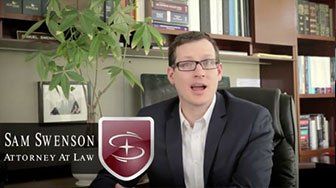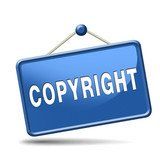PRACTICE AREAS
RATINGS
CONNECT WITH US
VIDEOS
Do I Need to Register My Copyright?
To understand whether you need to register a copyright or not, you first need to understand what a copyright is, how its created, and how it is enforced.
Many people are surprised to learn that American copyright law has its genesis in the Constitution of the United States. Article I, Section 8 of the Constitution defines the powers granted to congress. One such power is the power “to promote the Progress of Science and useful Arts, by securing for limited Times to Authors and Inventors the exclusive Right to their respective Writings and Discoveries.” This clause gives congress the power to grant copyrights but expressly requires that copyrights be limited in time.
As of January 1, 1978, US copyrights are governed by the 1976 Copyright Act. Prior to 1978, many states had their own copyright statutes, but the 1976 Copyright Act preempted nearly all state laws that previously governed copyrights. Current copyright law is found in Title 17 of the United States Code.
Under current law, a copyright is defined as follows:
“Copyright protection subsists…in original works of authorship fixed in any tangible medium of expression, now known or later developed, from which they can be perceived, reproduced, or otherwise communicated, either directly or with the aid of a machine or device.”
There is a lot packed into that long sentence. The first thing to note is that copyrights subsist in expressions and not in the ideas actually expressed. That is why a hundred different music pop-stars can write a hundred different songs about one topic (i.e.-broken hearts) and they can still all have a copyright in their expression of that topic.
The second thing to note is that the law requires the expression to be fixed in a tangible medium that can be perceived (seen, heard or felt). This concept gets tricky in today’s computer world where most expressions of ideas are in a digital format.
The last thing to note from the definition is that there is no requirement of registration written into the basic definition of a copyright. That means that a copyright “subsists” in an original expression of an idea, immediately upon being fixed to a tangible medium. If you are taking notes in your own words as you are reading this article, you immediately have a copyright in your notes!
Of course, having a copyright and being able to enforce a copyright are two separate concepts. Under the copyright law, in order to bring a lawsuit if your copyright has been plagiarized, you must first register the copyright with the United State Copyright Office. Registration can be done at anytime, even right before filing a lawsuit, but if you think there is a risk of plagiarism, then the sooner you register, the better. The registration process can take time. Also, there are statutory damages that can only be recovered if a copyright is registered before the violation takes place. Oftentimes, the statutory damages can be worth more than actual damages (harm actually caused by the plagiarism). Most people put off registration and only register their copyright when they realize it has been infringed.
This is all a long way of saying that if you are concerned that someone may steal your expressions, you want to expedite the enforcement of your copyright, and you want to maximize the amount of damages available for plagiarism, then you should absolutely register your copyright.
If you think you might want to register a copyright, or if you have any other copyright questions, check with an attorney familiar with copyright law. Remember: “that nothing is more properly a man’s own than the fruit of his study.” ( From a petition sent to the Continental Congress urging them to pass copyright legislation).
Copyright Sam Swenson, 2014













